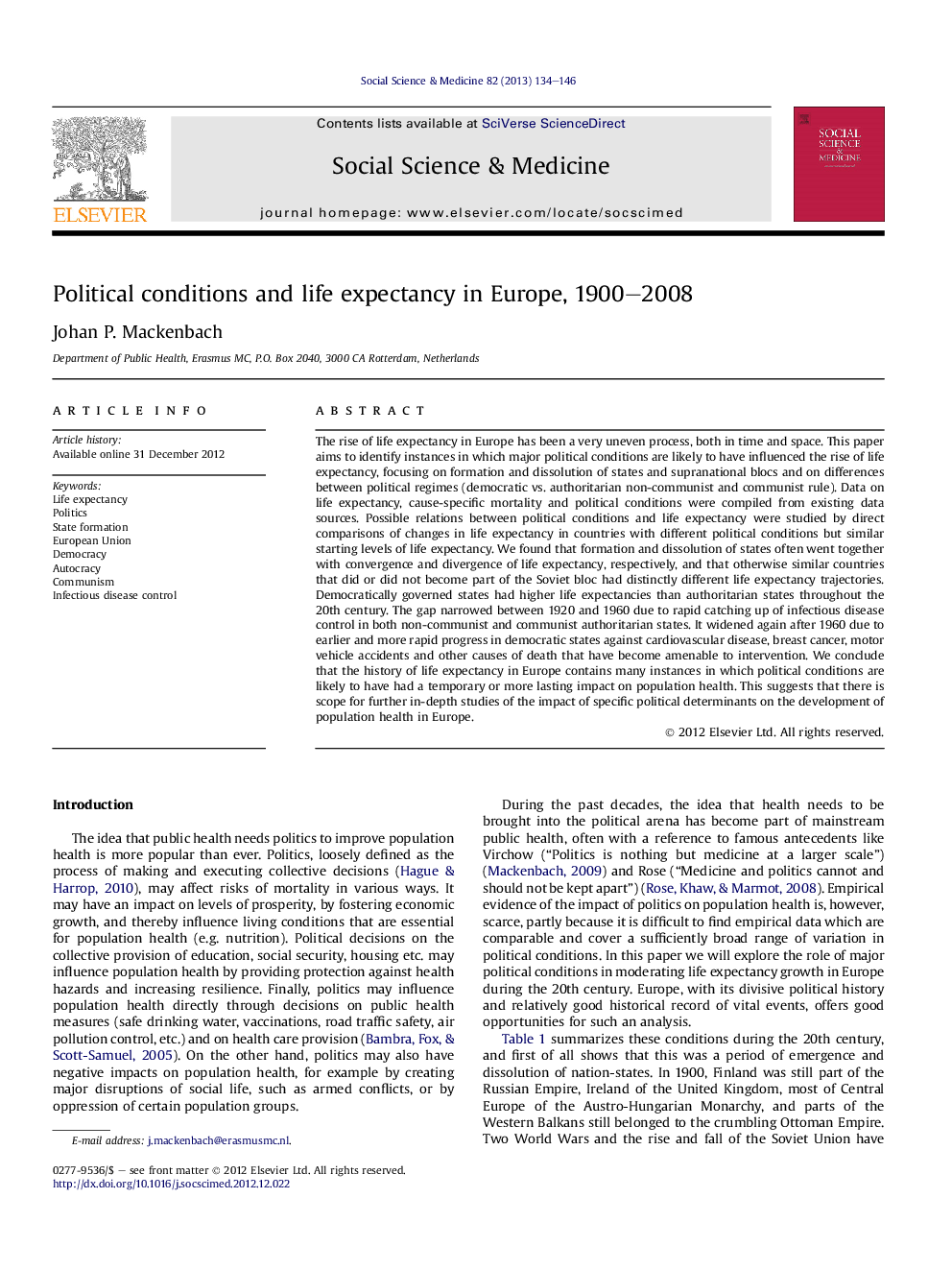| کد مقاله | کد نشریه | سال انتشار | مقاله انگلیسی | نسخه تمام متن |
|---|---|---|---|---|
| 952354 | 1476086 | 2013 | 13 صفحه PDF | دانلود رایگان |

The rise of life expectancy in Europe has been a very uneven process, both in time and space. This paper aims to identify instances in which major political conditions are likely to have influenced the rise of life expectancy, focusing on formation and dissolution of states and supranational blocs and on differences between political regimes (democratic vs. authoritarian non-communist and communist rule). Data on life expectancy, cause-specific mortality and political conditions were compiled from existing data sources. Possible relations between political conditions and life expectancy were studied by direct comparisons of changes in life expectancy in countries with different political conditions but similar starting levels of life expectancy. We found that formation and dissolution of states often went together with convergence and divergence of life expectancy, respectively, and that otherwise similar countries that did or did not become part of the Soviet bloc had distinctly different life expectancy trajectories. Democratically governed states had higher life expectancies than authoritarian states throughout the 20th century. The gap narrowed between 1920 and 1960 due to rapid catching up of infectious disease control in both non-communist and communist authoritarian states. It widened again after 1960 due to earlier and more rapid progress in democratic states against cardiovascular disease, breast cancer, motor vehicle accidents and other causes of death that have become amenable to intervention. We conclude that the history of life expectancy in Europe contains many instances in which political conditions are likely to have had a temporary or more lasting impact on population health. This suggests that there is scope for further in-depth studies of the impact of specific political determinants on the development of population health in Europe.
► Europe's political history has left deep traces in its nations' life expectancy.
► Dissolution of nation-states often went together with divergence of life expectancy.
► Formation of the EU has so far not had a converging effect on life expectancy.
► Life expectancy has been higher in democracies than in authoritarian states.
► This study identified many areas for further study of politics and health.
Journal: Social Science & Medicine - Volume 82, April 2013, Pages 134–146